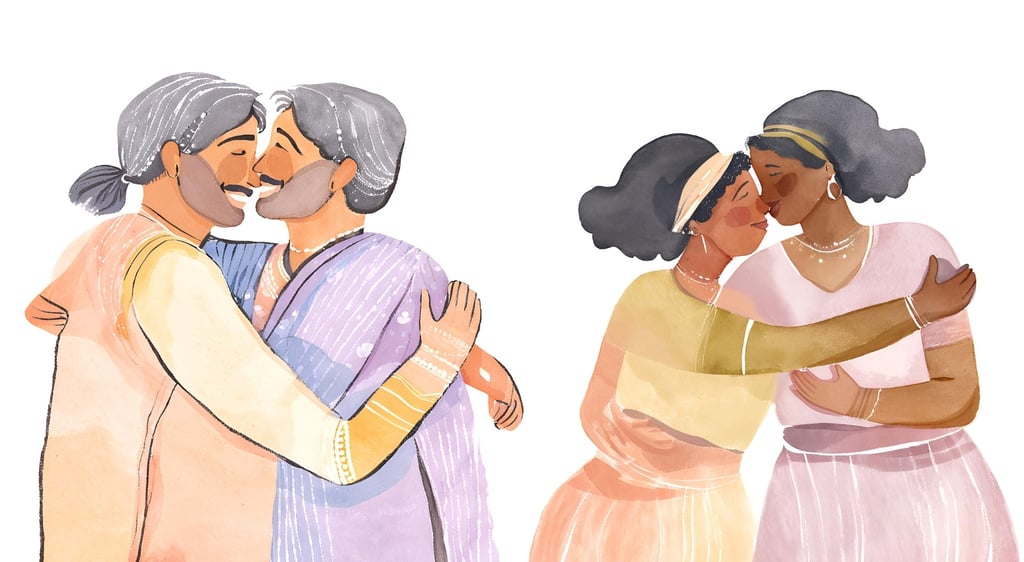Forgive and Forget? Navigating the Limits of Forgiveness in Relationships
JUST ASKINGLOVE
Victoria Guillou
11/12/2024


© Colonne / Canva
This one’s for Mitra—girl this is tricky business...
It’s funny—relationships teach us all sorts of things we didn’t expect. We enter them looking for companionship, attraction, and connection, but along the way, we find ourselves grappling with the real stuff: vulnerability, compromise, and, of course, forgiveness. I’m convinced that one of the biggest markers of a lasting relationship isn’t just love or passion but the ability to forgive, to hit “reset” on the parts we wish had gone differently. But how do we know when to forgive and when to walk away? Where do we draw the line between healthy forgiveness and, well, letting ourselves be taken for granted?
Forgiveness Is Not Forgetting
Forgiveness isn’t about pretending nothing happened; it’s about acknowledging it, working through it, and deciding if it’s something you can move past. In healthy relationships, both people grow and make mistakes—sometimes at the same time. But the key is that each mistake becomes a lesson, not a pattern. It should be the bridge, not the entire road. There’s a difference between a partner who forgets an anniversary and one who repeatedly disrespects boundaries. A one-time error, something done without malice, might be forgivable if there’s genuine remorse. But if the behavior becomes a pattern—whether it’s ignoring your feelings, betraying your trust, or never following through on promises—then forgiveness starts to feel more like permission. Ask yourself: if nothing changes, would I be okay with forgiving this again?
And let's not forget the classic “peacekeeper” move. Sometimes we forgive, not because we truly feel ready to let go, but because we’re afraid of conflict or worried about losing someone we care about. Real forgiveness comes from a place of clarity and calm. It’s a choice you make for yourself, not as an attempt to hold things together. If you find yourself saying, “It’s fine” through gritted teeth, ask if you’re forgiving or just making excuses to avoid a hard conversation.
What Are You Sacrificing to Forgive?
Every time we forgive, we make a little sacrifice—of pride, anger, or resentment. But if forgiving someone means sacrificing a part of yourself, like your self-respect, confidence, or sense of security, that’s a different story... Forgiveness should make you feel free, not diminished. If forgiving someone repeatedly leaves you feeling smaller, it may be time to ask if you’re in a relationship that’s truly right for you. Plus, letting go of an argument or a disagreement can be tough, but it’s part of forgiving. If you find yourself constantly revisiting the hurt, unable to truly move past it, it could be a sign that your heart isn’t ready to forgive. And that’s okay—real forgiveness takes time, and forcing it doesn’t make it more sincere. If you can’t let go now, give yourself permission to take the time you need to process it fully.
Ultimately, it's an act of self-care. Sometimes, it’s forgiving someone to keep peace in a relationship; other times, it’s forgiving them to make peace with yourself. When you forgive from a place of self-love, it doesn’t mean you condone what happened—it means you value your own peace of mind more than holding onto resentment. And sometimes, that means forgiving someone… and then choosing to walk away. Forgiveness in a relationship is tricky business. There are no “one-size-fits-all” rules, no guidebook, and certainly no promises that each time you forgive, things will change. But one thing is for sure: forgiveness should leave you feeling stronger, not stuck.
So, ask yourself—does forgiving bring you closer to the person you want to be? If so, then that’s a forgiveness worth keeping.
Want to speak about something precisely?
Just tell me, I'll (or we ?) write about it...

